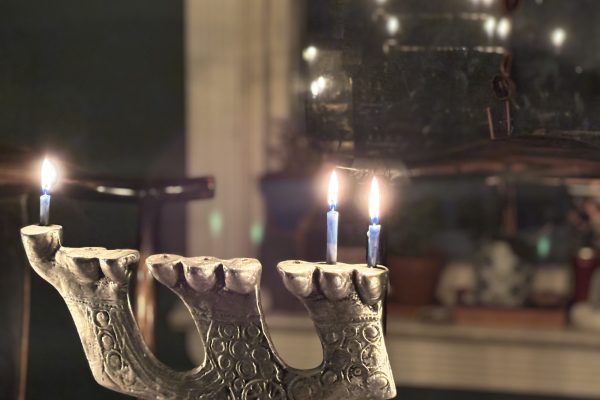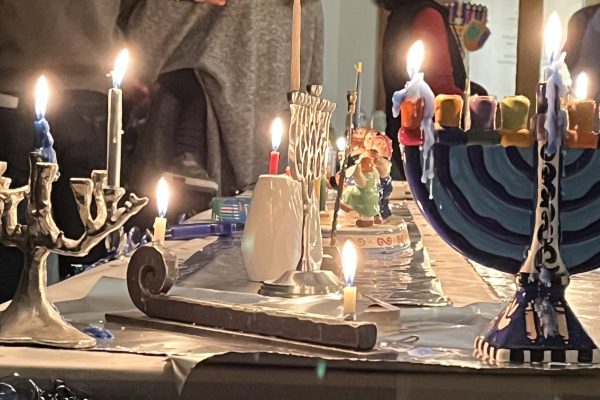We suggest saying these blessings when you light the candles for Rosh Hashanah, for Yom Kippur, and for every Shabbat and Festival during the Shmitah year. Some thoughts about why to do this and about changes in the brachas. The reason to do this is to remain aware throughout the year of what a whole year of Shabbat Shabbaton and Shmitah means – to stay both aware and active.
The “Name of God” is not an identifier, like “Hi, Esther” or “Hey, Daniel.” It expresses an understanding of the world. Substituting “Adonai” or “Lord” for “YHWH” endorses a worldview based on hierarchy. But if we try to pronounce “YHWH” with no vowels what happens is simply a Breath. It is a universal connector between and among all forms of life, animal and plant. It expresses an interwoven or ecological, rather than hierarchical, understanding of the world – the uniqueness of each being, fitting together like the pieces of a jigsaw puzzle within the Unity of all Being.
So in these prayers we honor the original intent of “YHWH” by presenting the sound as simply a Breath, or as “Yahhhh,” as in “Hallelu-Yahhhh” or as “Interbreath of Life” and using the word ruakh – breath, wind, or spirit – instead of melekh, king.
Similarly, the Hebrew mitzvah – which is conventionally translated “command,” coming from a lord or king, can also be understood as “connection” that is infused in the process of the jigsaw puzzle and of reality.
Barukh atah YHWH [Yahhhh] Elohenu Ruakh ha’olam, asher kidshanu b’mitzvot, vetzivanu lishmor ha’shanah shel Shmitah, Shabbat shabbaton.
2. Blessed be Yahhhh, our sacred Unity embracing us in the Interbreath of Life, for the Earth is Yours and we are but sojourners and resident-settlers with You.
Brukhah at YHWH [Yahhhh] Elohenu Ruakh ha’olam, ki leykh ha’aretz ki gerim v’toshavim anakhnu imeykh.
3. Blessed be Yahhhh, our sacred Unity embracing us in the Interbreath of Life, who makes us holy by connecting us with each other and all being, and teaches us to kindle the festival lights.
Barukh atah YHWH [Yahhhh] Elohenu Ruakh ha’olam, asher kidshanu b’mitzvot, vitzivanu l’hadlik ner shel yomtov [or Shabbat].
4. Blessed be Yahhhh, our sacred Unity embracing us in the Interbreath-of-life, who has filled us with life, lifted us up, and carried us to this moment.
Barukh atah YHWH [Yahhhh] Elohenu Ruakh ha’olam, shehekhiyanu v’kimanu v’higianu lazman hazeh.
Rabbi Shefa Gold has created a new chant and a new midrashic translation of the Shehekhiyanu prayer (learn more and listen here).











